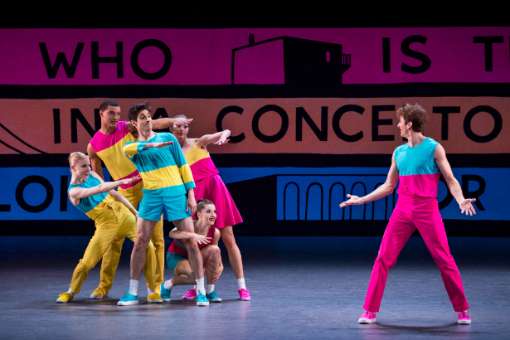The 2018 Bachtrack's statistics on all things classical are out and Leonard Bernstein has been revealed as the third most performed composer in the world, behind usual favourites Beethoven and Mozart. It's a giant leap for the American composer, who was ranked 43rd in 2016 and 27th in 2017.
In the wake of Bernstein at 100 – the worldwide celebration of the 100th birthday of the composer – four of the top five most performed concert works are also by him, with West Side Story: Symphonic Dances taking first place. See our infographic for all details.
This incredible success did not happen by chance: the so-called "centennial effect" that in 2013 helped propel Britten from 22nd to 4th place, this year also helped Debussy, who went from number 12 to number 8. But while the flurry of events certainly played a part in this result, an anniversary alone would have not been enough to capture the world's imagination to this degree.
“We started planning the events for the centennial five years ago," he tells me, when I call him on a New York morning from a cold London evening. "We started by creating ideas. For example, we decided to establish ‘temple cities’, places that were strategically important. That led to our establishing 'summit conferences': we would take, let’s say, New York, and we would have a host, which in that case was Lincoln Center, and they would invite all of the arts-related organisations in that area to come together in one place, to talk about their plans for the centennial, so that each would know what the other was doing. As a result, nobody was stepping on anybody else’s toes.”
After an initial conference in London, which proved very successful, summit conferences were organised all over the world.
“It surprised me that they were so successful,” Epstein says. “I didn’t expect as many people to attend as they did. And they really worked very well together, talking about what plans they had made. People would then know, well, I was thinking of doing that so now I won’t because that person is doing it: I’ll do such-and-such instead. That created a great big breadth of programming that we might not have had otherwise, because we might have been in a situation where everybody programmed Symphonic Dances just because nobody knew who was doing it. This way everybody knew who was doing what and they could plan accordingly.”
The summit conferences had also the goal of taking Leonard Bernstein’s music to future generations. “I think we achieved what we set out to do,” Epstein says. “Based on the programming that developed, more young people know about Leonard Bernstein now than would have otherwise.”
A reassessment of Bernstein's music as a whole was also at the core of what the foundation aimed to achieve. “Since it was all being done in this dense period of time, we hoped that Lenny’s music would be looked at altogether, to make a new assessment of what it was worth, what it was about. We believed that that would all work to Lenny’s credit and in fact it did.”
And if certain pieces were rarely programmed before the centennial, now these same pieces have been performed hundreds of times this year alone. “It is possible to say that this was because it was the centennial,” Epstein says, “but we had every indication that they are still being booked for after the centennial.”
Instead, the Bernstein family and the foundation members made an active effort to attend as many different performances they could. “We had no plan to be at everything. We had a general idea that it would be gracious to attend when we could. The three Bernsteins made themselves available to do it an incredible lots of times. They were everywhere! If you were trying to find a Bernstein, one would be in China, one would be in Latvia… but they were doing it because they really did think it was a gracious thing to do for people who were performing Bernstein.”
One of Epstein's personal highlights was also pursuing dance companies to promote the rhythmic value in Bernstein’s music. "We wound up having a lot of new choreography done by the most important choreographers working today. Ratmansky, Wheeldon, McGregor, Peck… all these people did new Bernstein ballets."

And all this hard work paid off. “[Being in the top composers] makes us feel very gratified, because we feel we did right by Lenny,” Epstein says. “It is not so much about the figures, it is the fact that there was so much exposure to Lenny’s music that people really have begun to say: hey, there is really something important here. We have been avoiding this because it wasn’t modern enough or whatever, but it’s pretty darn good, so let’s play it!”
“I don’t think it is the same for everybody, but in the case of Lenny the centennial was an important step, because he was always somebody who would not go into twelve-tone music and all that. There was a sort-of a war, where Lenny was on one side and everybody else was on the other, and there was also the issue of eclecticism, as mentioned before. What was so good about the centennial for Lenny is that it proved that he was on the side of the angels, on all of those issues.”
Epstein attributes the success of these anniversary celebrations to two things: “One is Lenny himself. We wouldn’t have had any success if it hadn’t been for the fact that he gave us such good things to work with. Then there is the fact that we worked very hard for him, to make things happen.”
“One of the things that I mostly liked about working on the centennial is that it gave us non-creative people the opportunity to be creative and just being able to make something exciting that might not otherwise have been exciting, that shows Lenny to advantage in a place where he might have not been seen to advantage before… It’s a very gratifying feeling, to get to exercise your creative heart.”


